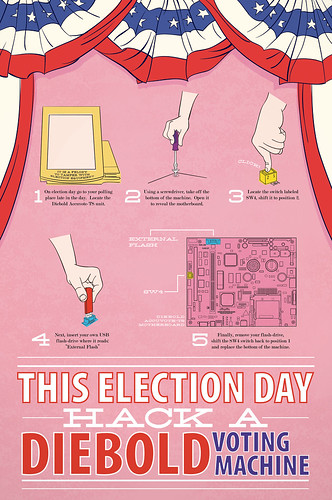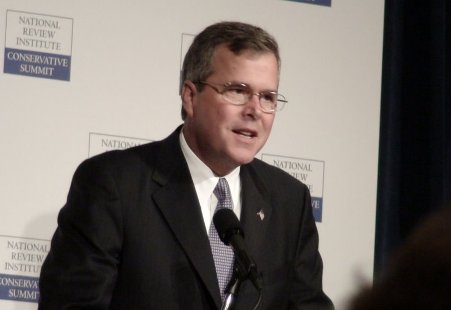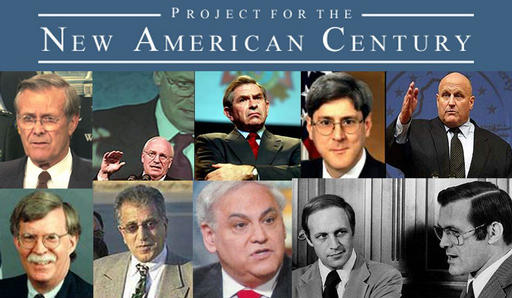What Really Happened in New Hampshire?

2008 New Hampshire voter
Serious discrepancies suggest a miscount in the New Hampshire primary. If the ballots counted by hand in part of the state are any indication, then Sen. Barack Obama (D-Ill.) may have beaten Sen. Hillary Clinton (D-N.Y.) for top spot in the Democratic primary, Sen. John McCain (R-Ariz.) beat former Mass. Governor Mitt Romney by 13 points rather than by 3 as reported, and former New York mayor Rudy Giuliani came in just behind Rep. Ron Paul (R-Tex.) instead of just above Paul.
Following the elections of 2000 and 2004, most people are aware of problems with electronic voting machines. But the problems do not all stem from voting electronically. There are also problems in electronic vote counting technology, even when votes themselves are cast on paper ballots.
The problems coming out of the New Hampshire primary are very, very serious. While these results may distress Democrats who support Mrs. Clinton and Republicans who support Mr. Romney or Mr. Giuliani, the vote anomalies in New Hampshire are larger than the interests of any one candidate.

Problems with voting and vote-counting technology
The unofficial vote tallies in the New Hampshire primary can be divided into two categories, votes counted by hand and votes counted by machine. New Hampshire uses paper ballots, but while 20 percent of ballots are counted by hand, the other 80 percent are counted by Diebold Accutron/Premier optical scanning equipment. As election researcher Kathy Dopp of the nonprofit USCountVotes points out, New Hampshire did not audit results manually after the election to verify the machine count accuracy.
In the January 8 primary, on the Democratic side,
- Where votes were counted by machine, Clinton came out with about 40 percent and Obama with about 35 percent.
- Where ballots were counted by hand, Clinton averaged 34 percent and Obama 38 percent.
On the Republican side,
- Where votes were counted by machine, Romney and Giuliani did better than by hand, all the other GOP candidates worse.
- Where ballots were counted by hand, Romney and Giuliani came out with worse percentages than by machine, all the other GOP candidates better.
The deeper point is that Clinton votes also come out differently from votes for John Edwards, Michael Gravel, Dennis Kucinich, and Bill Richardson.
In a striking pattern for any set of election results, all the anomalies go in one direction:
- Clinton was the only candidate who always came out a little better with machine counting than with hand counting.
- With hand counting, all the other Democrats always came out a little better than with machine counting.
New Hampshire Secretary of State William M. Gardner announced Jan. 11 in a press release that Democratic candidate Dennis Kucinich and Republican candidate Albert Howard have requested a recount. The recount begins Wednesday, January 16.

Counting votes in NH, 2008
It would have been unconscionable not to check. Nonprofit groups including Citizens for Legitimate Government, Democracy for New Hampshire, Election Defense Alliance, and the National Election Data Archive have already noted that New Hampshire results differed up and down the state in towns using the Diebold Accuvote optical scan election technology from those that counted the ballots by hand.
The statistics are disconcerting, but they are very solid. Where votes were counted by the Diebold Accuvote optical scan technology, Edwards averaged 16.7 percent. Where votes were counted by hand, Edwards averaged 17.6 percent. By machine, Mike Gravel averaged 0.139 percent, and by hand 0.144 percent. By machine, Dennis Kucinich averaged 1.227 percent, and by machine 1.843 percent. By machine, Barack Obama averaged 35.8 percent, and by hand 39.6 percent. By machine, Bill Richardson averaged 4.35 percent, and by hand 5.56 percent.
The point here is not that hand counting would have put Mike Gravel over the top. The point here, again, is that all the anomalies, as statisticians call them, go in one direction.
The same anomaly also emerges in the GOP results. On the Republican side, where votes were tallied by the optical scanning machines, Romney averaged 33 percent of the total and Giuliani 8.64 percent. Giuliani was not a factor in the New Hampshire race. Where votes were tallied by hand, Romney averaged 25.5 percent and Giuliani 8.14 percent.
Again, this factor differentiates Romney and Giuliani from all other candidates on the Republican side. Where votes were counted by op-scan, former Arkansas governor Mike Huckabee averaged 10 percent. Where votes were counted by hand, Huckabee averaged 13 percent. By machine, Duncan Hunter averaged 0.492 percent, by hand 0.581 percent. By machine, John McCain averaged 36 percent, by hand 39 percent. By machine, Ron Paul averaged 7.23 percent, by hand 9.22 percent. By machine, Fred Thompson averaged 1.171 percent, by hand 1.345 percent.
Had the hand count been the pattern for all GOP votes, headlines would have read that McCain beat Romney by almost 14 points, rather than by 3 points. Also, Ron Paul would have beaten Giuliani by a point rather than ranking just below him by a point. The rankings of all the other candidates would have been unchanged.
On the Democratic side, a vote total in line with the hand counting would have put Obama first in the New Hampshire Democratic primary, and the excessive media furor over New Hampshire would have reversed, although the primary would still have been close. The rankings of the other Democrats would have been unchanged.
But the exact magnitude of difference is not the main concern. The integrity of the election process is the concern.
Human error is a component in any election. The U.S. has a large body of election law, including a large body of law on election recounts. For the right to vote to be protected, recounting has to be protected, and American history includes hundreds of cases on the books, over the years, involving election recounts.
Human error, however, is random. When poor training, carelessness, and fatigue cause mistakes, the mistakes tend to be sloppy. As statisticians know, random error produces random results. Some mistakes benefit one side; other mistakes benefit the other side.
When mistakes all go in one direction, that is an anomaly itself.
Note: The hypothesis that the difference between hand counting and machine counting might stem from different demographics, different places, has already been addressed. The vote rundown is broken down very thoroughly for larger and smaller towns. Smaller towns that used the machines came out differently from small towns using hand count, and larger towns using machines came out differently from larger towns using hand count.
In any case, it is unclear what demographic would produce pluses for Clinton, Romney and Giuliani and minuses for all other candidates, Democrat and Republican.
The other hypothesis, that the difference between Clinton and Obama is a factor of race, can also be discounted. Again, it must be emphasized that the difference between machine counting and hand counting shows up with all the Democratic candidates, not with just Obama and Clinton. Why would ‘race’ have caused supporters of Dennis Kucinich and Bill Richardson to switch to Clinton at the last minute? Besides, if race were truly the deciding factor on the Democratic side, surely some other white male candidate would have benefited. No self-respecting bigot goes into the voting booth irresistibly impelled to cast his vote for a woman.
Obviously race could not have been a factor separating Romney and Giuliani from the pack on the Republican side.
Transparency requires full publication of raw New Hampshire exit polls, the most reliable form of polling. Meanwhile, the vote tallies raise questions. Clinton and Obama, after all, are not the only ones in the picture. The voters are supposed to be in the picture, too.



















